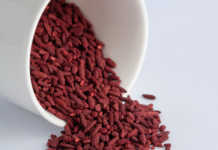
By Dr. Tracey Teasdale, ND
You go to the gym, yoga, fitness classes, or you’ve started a running program. That’s fantastic! But, are you doing everything you can to optimize your investment in your health and fitness? Chances are that you’re probably missing a few things that could maximize your results.
1. Eat well
Food is your fuel, so it’s important that you have a full tank. Ensure that you’re consuming enough calories to power your workout and that you are refuelling after your workouts to encourage growth and repair of tissues. A light carbohydrate-based snack can help give you a boost of energy before you hit the gym. Getting a good dose of protein and carbohydrates after your workout will help stimulate repair of damaged tissues and start replenishing muscle glycogen to get you ready for your next training session. Fats cannot be overlooked, as some evidence suggests that reduced fat intake is associated with higher rates of injury. While many focus on the macronutrients, don’t forget about getting all of your vitamins and minerals. These are involved in all of the chemical reactions that turn your dietary carbohydrates, fats and proteins into usable energy to power your day and your training. They are involved in tissue repair, immune system function, cardiovascular health, hormone secretion, and just about everything else your body does. Eating a variety of colourful foods can help you reach your micronutrient goals.
2. Get enough rest
This refers to both sleep habits and rest days. Your body needs a little downtime in order to recover. Most of the repair and recovery occurs during your sleep, but you cannot overlook the value of taking a day off or cycling your training program (see number 3). Growth hormones and their anabolic friends are secreted during and after exercise, however, their greatest concentrations occur during deep sleep. In order to fully maximize your results, these hormones need to act on your musculoskeletal system so it can repair and grow stronger. During the night, you move between different phases of sleep, with each cycle lasting from 90 to 120 minutes. The longest section of deep sleep occurs just after you initially fall asleep. Having good sleep hygiene—minimizing electronics before bed, limiting alcohol and caffeine, and reducing overall light exposure before bed—can help you fall into that deep sleep more effectively, allowing your body to begin to repair itself quickly.
3. Preventing Injuries
The number one indicator of success in fitness is the consistency of your training, so preventing injuries should be among your priority list. Overuse and traumatic injuries can completely derail your program and throw you off your goals. Having an appropriate training plan with adequate rest, addressing movement limitations, and using correct form can all help to reduce your risk of injury. Self-care, such as stretching, alternating hot and cold showers, and nutrition can also help. If you have aches or pains that persist or change the way that you move, it is worthwhile having that pain assessed. Treatments like acupuncture, trigger point therapy, laser, and active release can all help to mitigate these nagging pains and help you return to function faster.
4. Stress Management
Managing chronic stress can play a role in your weight management. Many of us use exercise as a means to blow off some steam, but we forget that exercise itself is a stressor. Long-term stress can lead to changes in cortisol levels, which, in turn, can lead to reduced blood sugar control, weight gain in the abdomen and trunk, and can reduce your body’s ability to heal and recover after exercise or injury. It can also reduce your immune system’s ability to attack bacteria and viruses, leaving you more prone to infection and more likely to take days off from your training. Stress can reduce sleep quality and quantity, which leads to poor dietary choices, both of which can derail your progress before you even begin. Lastly, chronic stress leaves you tired and unmotivated to take on your workout, making the snooze button on your alarm clock much more appealing than your early morning training session. Recognizing that you are stressed is the first part of this battle. Simple interventions like diaphragmatic breathing, meditation, and time management can all help to reduce stress. Acupuncture, certain vitamins and minerals, herbs, and hydrotherapy can also help when used appropriately.
5. Hormonal Balance
Your body runs on hormones. Most hormones are made from fats, proteins, vitamins and minerals, so diet becomes important in the adequate production of hormones. The thyroid gland is the metabolic centre of your body and regulates how effectively we burn calories. Evidence suggests that severely restricting caloric intake, especially carbohydrates, can reduce your body’s ability to produce the thyroid hormone. This leaves you tired and unable to lose weight despite your best efforts and has other spin-off effects like sluggish digestion, lowered mood, high blood pressure and cholesterol levels, and thinning hair.
__________
Dr. Tracey Teasdale, ND, is a naturopathic doctor who practices in Barrie, ON. She has a special interest in sports medicine, sport nutrition and pain management. She is an assistant professor at Canadian College of Naturopathic Medicine and supervises the sports medicine focus at the
Robert Schad Naturopathic Clinic. For more information please visit www.rsnc.ca or call 416-498-9763.










